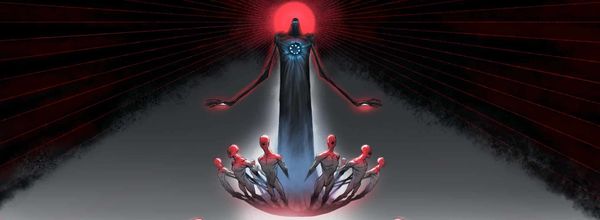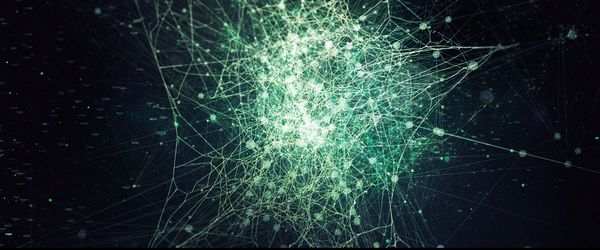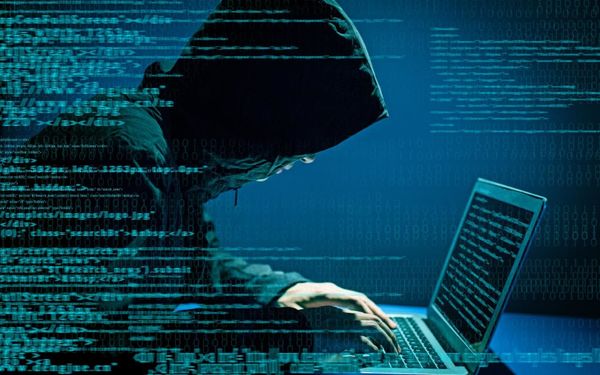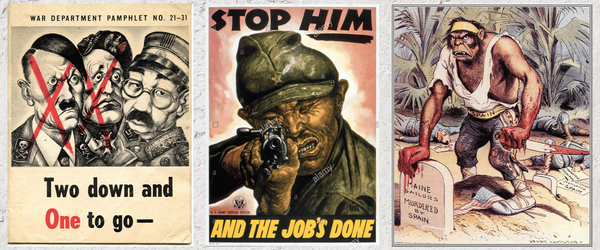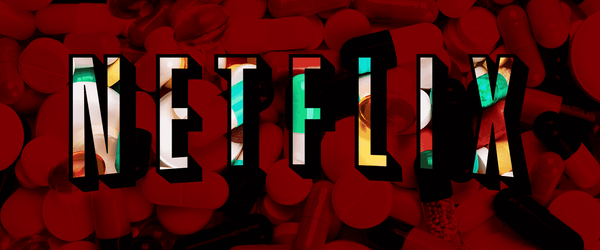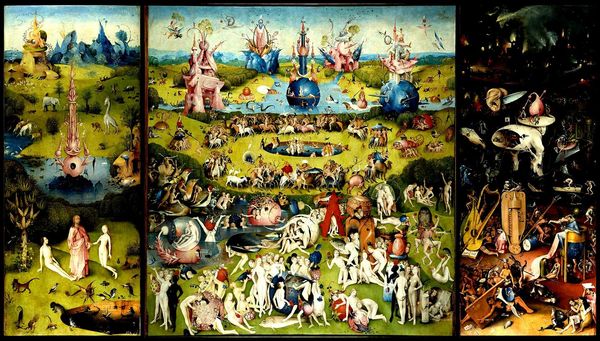Andy Dilks • • 6 min read
Sex, Esoteric Material and the Hypocrisy of Censorship
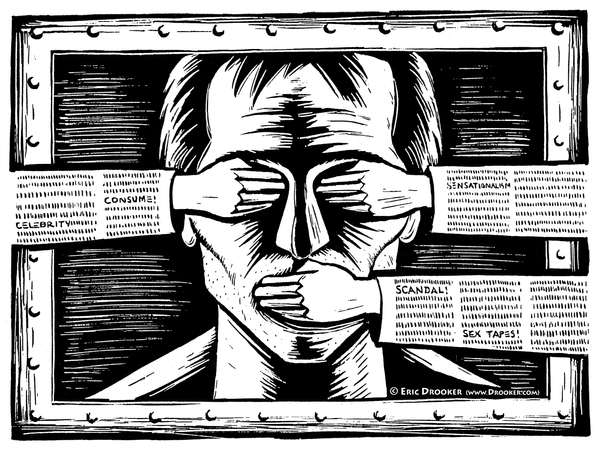
Once again the spectre of internet censorship has reared its ugly head. On January 14th 2014, an appeals court in Washington ruled that the Federal Communication Commission’s “net neutrality” rules no longer applied. It was a game changing decision with the potential to completely reshape the online landscape – with the FCC no longer able to enforce which websites internet service providers can favour, limit access to or block completely, the stage is set for large corporations to effectively control the information we receive, cutting deals with other large corporate content providers and providing them with faster and reliable “express lanes” with smaller, independent websites falling by the wayside. The well-founded fear is an internet landscape dominated by corporate content, while alternative voices are marginalised into lower tier bandwidth categories where they will be much slower to load or, worse still, unavailable to the public. The potential for censorship of content deemed “unsavoury” is a grim prospect for anyone who cares about freedom of speech.
While the prospect of an internet dictated by corporate greed is bad enough, overt control by the government of what we can and cannot view would surely lead to propaganda-driven narratives dominating the net with dissenting opinions marginalized, if not silenced outright. Last year, the British government announced plans to introduce a mandatory internet filter intended to block content “harmful to children”, including but not limited to pornography, file sharing sites, material relating to drugs and alcohol, extremist or terrorism-related content and esoteric material. These firewalls will be run on an opt-out basis, which in and of itself would present the government with a unique opportunity for web user profiling, with ominous implications for the further expansion of the pervasive surveillance state in which Britain’s spy agency GCHQ already works closely with the NSA.
Given the broad – and vague – definitions set out by David Cameron’s internet filter proposal there is a very real danger that legitimate websites are blacklisted, particularly if decisions are based on algorithmic keywords. Websites which use words like “porn”, “rape”, “violence”, “al-Qaeda” and anything else deemed to flag unsuitable content could find themselves automatically blocked, with no recourse to appeal and determine the nature of the alleged offending content. Smaller independent websites may find themselves blocked without knowing why, while a culture of self-censorship could emerge, with bloggers and activists fearful of using terminology which might see them fall foul of the filter algorithms.
The Trojan Horse of internet censorship through the guise of a paternalistic desire to protect our children from pornography is laughable when viewed in the context of British politicians’ predilection for material of an adult nature. The hypocrisy of their publicly prudish attitude towards pornography was made clear when it was revealed in September 2013 that MPs, peers and other Parliamentarians had tried to access over 300,000 “adult” sites within the space of a year, according to official figures. A spokeswoman from the House of Commons issued this brazen statement in response to the revelations: “We are not going to restrict parliamentarians’ ability to carry out research.”
British politicians are not alone when it comes to viewing material of a questionable nature – considerably more scandalous information emerged in 2010 when over 5000 Pentagon employees were found to have purchased child pornography. Just as serious investigations into paedophilia in the UK have been mysteriously stymied or shut down altogether once prominent MPs and civil servants began to be named, only a handful of convictions were handed down to military officials and defense contractors, and many identified suspects were never prosecuted. It highlights a culture of impunity for those within the state apparatus, with the very institutions responsible for pushing for internet censorship themselves guilty of trafficking in illegal material of the worst possible kind.
Perhaps the most disturbing aspect of the British government’s internet censorship proposal is the grouping of “esoteric material” alongside pornography and violent content. “Esoteric” is defined as: “adjective. intended for or likely to be understood by only a small number of people with a specialised knowledge or interest.” The implications for the future of web content which doesn’t fit into the mainstream discourse is clear – websites which deal with alternative news, conspiracy theories, spirituality and the occult could find themselves categorised as equally “dangerous” to children as hardcore pornography and end up blocked to anyone who hasn’t opted out of the filter.
While bloggers and alternative researchers may find themselves increasingly self-censoring out of fear of fear of being shut down, mainstream journalists also self-censor, although many of them do so subconsciously and would reject such accusations as absurd. The corporate media system and the academic world from which its members are made up act as an ideological filter – Noam Chomsky and Edward Herman outlined this process in their book Manufacturing Consent: The Political Economy of the Mass Media, which was illustrated clearly when Chomsky was interviewed by the BBC’s political correspondent (and, some might say, chief propagandist for the British establishment) Andrew Marr, who reacted with incredulity at the suggestion that he was guilty of participating in this system:
It is perhaps ironic that Chomsky himself has often been accused of functioning within the same ideologically restrictive system, serving as a valve which limits the parameters of criticism of the state and its crimes, particularly when it comes to what Peter Dale Scott refers to as “deep events”, including the assassination of JFK and the attacks of 9/11. The world of deep politics is perhaps the ultimate journalistic taboo, frequently defined pejoratively as “conspiracy theory” and rarely discussed in the mainstream with any attempt at serious analysis.
The dichotomy between free and independent and corporate controlled media existed long before the advent of the internet. The marginalization of media which genuinely sought to challenge those in power began early on in America’s history. President Adams was quick to eviscerate the First Amendment by passing the Alien and Sedition Acts in 1798, which criminalized scandalous or malicious criticism of the government – by the time these laws expired in 1800 and 1801 over 20 newspaper editors had been arrested, some being imprisoned.
The industrialisation of the press allowed for wealthy capitalists, backed by advertisers, to come to dominate the discourse available to the public. American writer Henry James recognised this in the early 1900s, stating, “The press is the hired agent of the moneyed system, set up for no other reason than to tell lies where the interests are concerned.” Even before then it was understood by some that the role of the media was shifting away from presenting a wide range of opinions to a mouthpiece for the elites. Ferdinand Lassalle, founder of Germany’s first independent labour party, observed in 1863 that, “newspapers, while still retaining the appearance of being campaigners for ideas, changed from being educators of the people into lickspittles of the wealthy and subscribed bourgeoisie … shackled by the real foundation of the business – advertisements.”
The appearance of impartiality was crucial for the new corporate press, but their readiness to accept a plurality of opinions, particularly those challenging those in power, was far from a reality. The mainstream media to this day presents itself as a “fourth estate”, a much-needed counterbalance to unchecked political power, a myth that was present at the birth of “professional journalism”. With a straight face, state and corporate media organs such as Fox News and the BBC insist they are “fair and balanced” and “impartial and objective”, while at the same time repeating one-sided propaganda which serves the interests of their government and corporate backers.
But there is a positive aspect to the ongoing attacks on the vitality and independent spirit of journalism found on the internet today. It is a reflection of the dwindling power of corporate and state sponsored mainstream media in the modern world – a sign of the desperation felt by those in power as they lose their grip on the control of the narratives they wish to impose on the public. Lies which previously could have been peddled without fear of exposure are being unravelled as soon as they are spun – from the lack of weapons of mass destruction in Iraq to banking fraud and money laundering, the truth about the crimes of the rich and powerful are brought to light with increasing regularity. It is as if the spirit of the underground presses found in war torn Europe and continuing into the post-war era in the European and American counter-culture movements has found a new global voice, unfettered by the old limitations of printing and distribution.
Goethe once said: “Truth has to be repeated constantly because Error also is being preached all the time, and not just by a few but by the multitude. In the Press and Encyclopedias, in Schools and Universities, everywhere error holds sway, feeling happy and comfortable in the knowledge of having Majority on its side.” The desperate attempts on the part of corporations and media to take back total control of the flow of information suggests that, perhaps for the first time in history, the Majority are starting to take the side of Truth.

